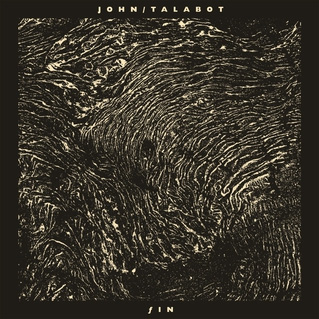Barcelona’s pseudonymous operator John Talabot approaches his music as you might a collage, or a patchwork quilt. Each individual fragment is woven into the rest so that the joins remain visible, but in certain places they begin to fray, and sometimes disappear entirely. The resulting tracks constantly toe the line between careful structure and blurry mess – and occasionally, when everything works as it ought to, manage to exist in both states as once. His remix of Zwicker’s ‘Oddity’, for example, splayed the original’s tight funk groove outward until it became thick and sludgy, but even among a quagmire of excess noise somehow held everything together within a lithe, doomy disco frame.
2010 single ‘Sunshine’, though making liberal use of airy guitar loops a la Four Tet or Caribou, remained at once more flighty and more rooted in club functionality than either of those two. Its massive, booming low end provided a tight framework around which Talabot’s other sound sources were allowed to play – strummed upright bass; spidery guitar lines; wordless chants that recalled West African musics. In particular, the kick drums in those early tracks were monstrous – great distended things that hit the gut in dry, powdery bursts, they were allowed to flake around the edges and send shockwaves through their surroundings. Though few of his tunes exceeded the 115-118bpm mark (on the slow side for clubby disco/house tracks), these weighty drums lent them such momentum that, dropped in a club, their low tempo was scarcely an issue.
So one of the first things that’s notable about Talabot’s debut full-length proper is that those great booming kicks are, for the most part, absent. In interviews he’s stated that this was a conscious effort to ensure that ƒIN became an actual album rather than a set of club tracks chucked onto a CD. While constructed in much the same way, the emphasis of most of ƒIN‘s contents is rather different from that of his earlier dance 12"s. Its only longform club track, ‘When The Past Was Present’, arrives three quarters of the way through. Instead his synthetic approach to sampled instrumentation (often from acoustic instruments) has been put to the service of slow, meandering disco instrumentals.
Opener ‘Depak Ine’ is a good example. Talabot plays it restrained, losing the kick drum entirely and allowing its forward momentum to be generated entirely by mid-range melody and rolling cymbal work. Like his earlier music, it’s a cocktail of a track, where synthetic voice, hefty guitar chords and woodblocky percussion coalesce into a near-opaque stew. It would sound so muddy, were each component not handled so delicately. The same is true of the rest of the album – throughout, Talabot manages to audibly reference his dancefloor roots while avoiding sticking to a clubby music framework. Instead he takes a more impressionistic approach to his experiences as DJ and dancer, detaching melodies from the rhythm section, slowing them and allowing them to blur, seasick, into one another. The results might sound very little like the druggy, loopy musics that inspired them, but they’re reminiscent of the actual sound of being in the middle of a packed club with music passing through your body at high volume. With the physical impact removed, they lose the energising effect and instead become relaxing. ‘Last Land’ is another nice example, its house diva vocals pitched up and forcibly smashed into the background, simply another of the many things jostling for a listener’s attention.
There’s already been a flurry of excitement surrounding ƒIN, with several reviewers and commenters lining up to offer variations on "an early contender for best electronic album of the year" (even in February, it seems it’s just so tough to resist). To some extent the hype is justified – it’s beautifully composed and beautifully produced, and a great deal deeper than some of the albums it might superficially resemble (Caribou’s Swim for example). Like Swim, though, it’s rather polite, and one notable mid-album misstep, the Panda Bear-ish ‘Journeys’, completely kills the momentum, feeling like a violent shift across into indie-ish electronic territory that’s unwelcome in the middle of such a smooth ride.
However, more than most modern producers tackling sound palettes associated with disco and early Chicago house, Talabot understands the tug of war between celebration and catharsis that made those musics so viscerally thrilling to listen to and dance to. At its best there’s a dark side to ƒIN, a slight melancholy buried beneath superficially quite airy and lighthearted music. Fourth track ‘Oro Y Sangre’, for example, is punctuated by tortured screams and machine whines, serving to make the carnivalesque whirl of melody surrounding them feel suddenly overbearing and deeply menacing. ‘Gold & Blood’, indeed. Though Talabot is from Barcelona, this emotional and physical rawness aligns him more closely with current Stateside deep house experimentalists like Theo Parrish and Omar-S. "They didn’t care about clean sounds," he said of Parrish and his fellow Detroit house producers when I interviewed him last month. "They come with a philosophy behind it – to try to find an organic sound, a personal sound, a way to approach to the soul." His music might sound quite different on the surface, but at times during ƒIN he could just as easily have been talking about himself.


